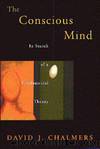The Conscious Mind by David Chalmers

Author:David Chalmers
Language: eng
Format: mobi
Published: 2011-05-08T04:00:00+00:00
Toward a Nonreductive Theory
Even if consciousness cannot be reductively explained, there can still be a theory of consciousness. We simply need to move to a nonreductive theory instead. We can give up on the project of trying to explain the existence of consciousness wholly in terms of something more basic, and instead admit it as fundamental, giving an account of how it relates to everything else in the world.
Such a theory will be similar in kind to the theories that physics gives us of matter, of motion, or of space and time. Physical theories do not derive the existence of these features from anything more basic, but they still give substantial, detailed accounts of these features and of how they interrelate, with the result that we have satisfying explanations of many specific phenomena involving mass, space, and time. They do this by giving a simple, powerful set of laws involving the various features, from which all sorts of specific phenomena follow as a consequence.
By analogy, the cornerstone of a theory of consciousness will be a set of psychophysical laws governing the relationship between consciousness and physical systems. We have already granted that consciousness supervenes naturally (although not logically) on the physical. This supervenience must be underwritten by psychophysical laws; an account of these laws will tell us just how consciousness depends on physical processes.
Given the physical facts about a system, such laws will enable us to infer what sort of conscious experience will be associated with the system, if any. These laws will be on a par with the laws of physics as part of the basic furniture of the universe.It follows that while this theory will not explain the existence of consciousness in the sense of telling us ''why consciousness exists," it will be able to explain specific instances of consciousness, in terms of the underlying physical structure and the psychophysical laws. Again, this is analogous to explanation in physics, which accounts for why specific instances of matter or motion have the character they do by invoking general underlying principles in combination with certain local properties. All sorts of macroscopic physical phenomena can be explained in terms of underlying physical laws; similarly, we might expect that all sorts of "macroscopic"
experiential phenomena might be explained by the psychophysical laws in a theory of consciousness.
There need be nothing especially supernatural about these laws. They are part of the basic furniture of nature, just as the laws of physics are. There will be something "brute" about them, it is true. At some level, the laws will have to be taken as true and not further explained. But the same holds in physics: the ultimate laws of nature will always at some point seem arbitrary. It is this that makes them laws of nature rather than laws of logic.
In science, we never get something for nothing: something, somewhere must always be taken for granted. It is a remarkable fact that in most areas of science, all we ultimately need to take for granted are the laws of physics and perhaps some boundary conditions.
Download
This site does not store any files on its server. We only index and link to content provided by other sites. Please contact the content providers to delete copyright contents if any and email us, we'll remove relevant links or contents immediately.
Periodization Training for Sports by Tudor Bompa(8273)
Why We Sleep: Unlocking the Power of Sleep and Dreams by Matthew Walker(6725)
Paper Towns by Green John(5191)
The Immortal Life of Henrietta Lacks by Rebecca Skloot(4588)
The Sports Rules Book by Human Kinetics(4388)
Dynamic Alignment Through Imagery by Eric Franklin(4217)
ACSM's Complete Guide to Fitness & Health by ACSM(4060)
Kaplan MCAT Organic Chemistry Review: Created for MCAT 2015 (Kaplan Test Prep) by Kaplan(4012)
Livewired by David Eagleman(3775)
Introduction to Kinesiology by Shirl J. Hoffman(3773)
The Death of the Heart by Elizabeth Bowen(3622)
The River of Consciousness by Oliver Sacks(3604)
Alchemy and Alchemists by C. J. S. Thompson(3522)
Bad Pharma by Ben Goldacre(3428)
Descartes' Error by Antonio Damasio(3279)
The Emperor of All Maladies: A Biography of Cancer by Siddhartha Mukherjee(3163)
The Gene: An Intimate History by Siddhartha Mukherjee(3098)
The Fate of Rome: Climate, Disease, and the End of an Empire (The Princeton History of the Ancient World) by Kyle Harper(3067)
Kaplan MCAT Behavioral Sciences Review: Created for MCAT 2015 (Kaplan Test Prep) by Kaplan(2986)
